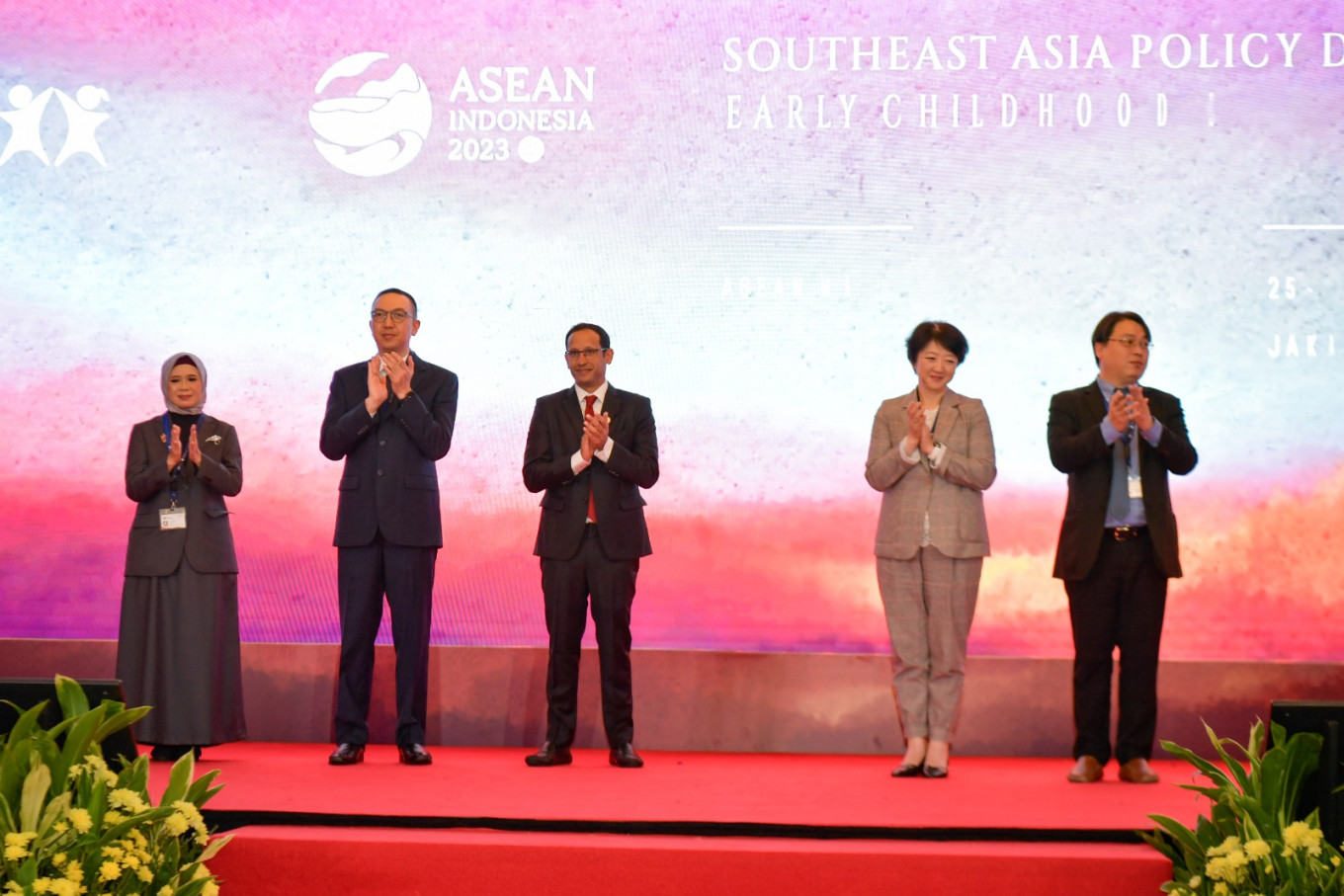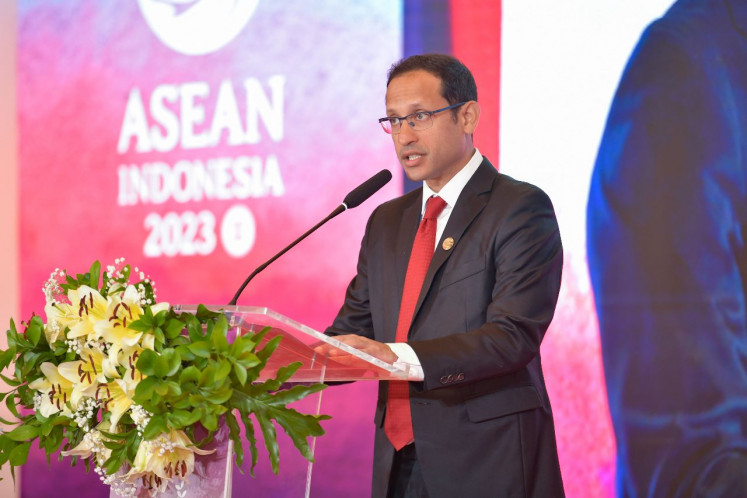Popular Reads
Top Results
Can't find what you're looking for?
View all search resultsPopular Reads
Top Results
Can't find what you're looking for?
View all search resultsIndonesia urges ASEAN to take a closer look at early childhood education needs
Change text size
Gift Premium Articles
to Anyone
E
ducation, Culture, Research and Technology Minister Nadiem Anwar Makarim chaired an ASEAN roundtable meeting on Early Childhood Education and Services (PAUD) at the South East Asia Policy Dialogue on Early Childhood Care and Education (SEA PD on ECCE).
The focus on education has been a huge part of the discussion in ASEAN during Indonesia’s chairmanship this year. With the theme “ASEAN Matters: Epicentrum of Growth”, the member states aim to bring the region to the forefront of innovation and unlock the potential for investment in the future. With that mission in mind, Indonesia aims to improve human capital by closing the education gap.
"I want to underline the three main assets of ASEAN member countries. First, regional stability, second, economic growth and, third, demographic bonus," said minister Nadiem, speaking to education ministers and ASEAN high-ranking officials, in Jakarta on Wednesday.
Minister Nadiem noted that the growth in the demographic bonus in the region served as a signal for a better world in the future. However, the accessibility and equity of education remained an obstacle in several countries, he added, including Indonesia.
In order to ensure growth, quality education has to start at a very young age. He further emphasized that the important role and long-term impact of early childhood services and education had been widely recognized. PAUD is the foundation for health and well-being, educational success and long-term economic and social productivity.
“The next generation will be an important key in ASEAN's journey to become a global growth center. It is our responsibility as the ministry of education to mobilize joint efforts to increase the capacity of our children," said minister Nadiem, who took office in 2019 as the youngest minister in the Cabinet.
Considering ASEAN's demographic dividend, providing quality education to children in their early years of life is a meaningful investment for the growth and progress of the region. Moreover, as a continuation of Indonesia's Group of 20 presidency last year, the education ministry used the ASEAN chairmanship to call for greater investment in PAUD development.
Therefore, the conference is a platform for Indonesia to bring the conversation regarding the urgent need for improvement in PAUD to a wider audience and to reiterate the need for commitments from other member countries to work together as an investment in a more prosperous future. True to Indonesia, it can only be achieved through a collaborative efforts from multiple stakeholders.
This philosophy of bottom-up participation and collective action has enabled Indonesia, as the most populous country in Southeast Asia and its largest economy, to significantly transform its educational system, more specifically the quality of learning, availability and access, competence of teachers and education personnel, cross-sectoral partnerships, school-family collaboration, digital innovation and financial management.
"We need a continuous bottom-up transformation in our education system. For this reason, we have made the Merdeka Belajar [Freedom to learn] policy a mass movement for teachers, parents, families and communities that enables collective action to bring about essential and large-scale changes," continued minister Nadiem.
The ASEAN education ministerial roundtable was followed by the launch of the Scoping Studies of ECCE Policies in Southeast Asia, initiated by Indonesia. The results of this study are expected to enrich the understanding of the various strategies adopted by Southeast Asian countries in the delivery of early childhood education and services. Moreover, the declaration of education ministers in ASEAN regarding early childhood services and education is also expected to be one of the outputs of this two-day conference.
"Indonesia's chairmanship in ASEAN this year is an important milestone in our journey as a nation that develops and becomes part of the international community. Let's join together as one community to make ASEAN the epicenter of global growth and build our next generation as drivers of global prosperity," concluded Nadiem.











